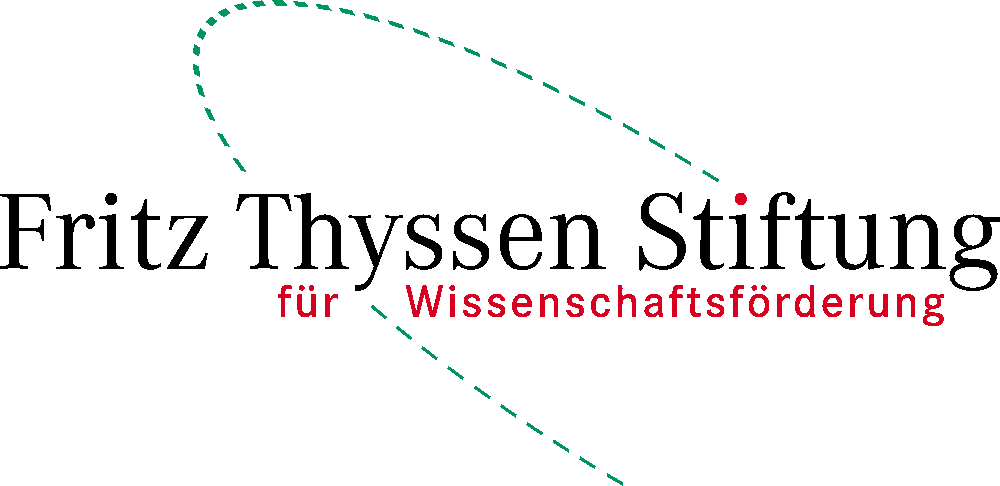William Marsden an Wilhelm von Humboldt, 21.05.1831
|176r|London 21.st May 1831My dear Sir,
Before I proceed to reply to your Queries, allow me to express my best thanks for the very kind & handsome terms in which you speak of my literary labours. I can only say that during the long period of half a century that has elapsed since I first ventured to publish, they have always been directed to the investigation & establishment of Truth.
In the first place you state that „M. Raffles tâche de prouver dans une lettre qu’il vous a adressé en 1815 et qui se trouve dans les Mémoires de sa vie, que les rapports avec le continent de l’Inde et la civilisation qui en a été la suite, se sont établis plus tôt dans les îles Moluques qu’à Java. Il dit à la suite de ce raisonnement (p. 237) que le Malay le plus cultivé (car c’est ainsi que je comprends l’expression the highest Malay) est parlé dans les îles Moluques, et que la traduction de la Bible dont S.r Thomas Raffles parle dans ce langage est à peine (scarcely) intelligible à ceux qui habitent les îles situées plus vers l’Ouest. Je servis curieux de connoitre, Monsieur, votre opinion sur ce passage et notamment sur les questions suivantes:“
Upon this I have to observe that the fact of the |176v| people of the Molucca islands having been civilised by intercourse with the continent of India at a more early period than those of Java, does not appear to me, from what I know of those islands, to be well founded, nor is it probable in itself. Splendid remains of Indian temples, with their numerous deities, still exist in the latter great island, & one of its dialects consists almost wholly of Hindu, Pali or Kawi words; but we have no evidence of the like being noticed in Ceram, Banda, or Amboyna. Their spices, it is true, have been objects of luxury in the West from the remotest times; yet it is more likely that they <these> were collected at different Emporia, & from thence procured by vessels from India, the Persian Gulf, & the Red Sea, than that the trade was a direct one to the remote islands where they were produced. It is true that since the period at which the Eastern archipelago has fallen under the dominion of Europeans, the progress of Christianity & the degree of civilisation attending it has been much more considerable in the smaller islands, such as the Moluccas, than in the larger, where the native population is comparatively independent; but this foreign influence has certainly not had the effect of redering the Malayan dialect more pure. Of the contrary we find a proof in the „Collectanea Malaica Vocabularia“ published at Batavia in 1707, where a list is given of „Eenighe Portuguysche woorden die inde Eylanden van Amboyna, Banda, en Molucken veel onder ’t Maleys werden vermenght“; amounting in number to 143. This, however, is to be understood of the common oral dialects, from which the written language varies much, although |177r| not essentially different. The latter preserves an uniformity, & the reading of a letter from a prince of Ternate is attended with no more difficulty than of one from the peninsula of Malacca. „High Malays“ may therefore be described as the language of the best literary composition, of the courts, & of the superior class of people, as distinguished from the vulgar idiom of small traders, servants, & others of the lower class – which, in truth, is that of the generality of Europeans.
You then ask: 1.° „Quelle est la traduction de la Bible dont S.r Thomas Raffles parle? J’en trouve plusieurs dans le Catalogue de votre bibliothèque, mais n’en connois par moi-même que celle publiée récemment en lettres Romaines par la Societé biblique.“
It is difficult to say to which of the Translations S.r T. S. Raffles meant to refer, but I consider as decidedly the best, that which was printed at Amsterdam in the year 1732, II vols. 4.to, in a modified Roman character, & of which an Edition in the Malayan character was printed at Batavia in 1758, V. vols. 8.vo. No evidence appears of this translation having been prepared in a dialect peculiar to the Molucca islands, nor, as the style adopted is that of the High or literary, do I think that any distinction of dialect could be observed. The Ecclesiatics to whose pious labours we are indebted for the work, were liable, like other servants of the East India Company, to be removed from place to place, & it is not improbable that more leisure or freedom from interruption may have been found at Amboyna than at Batavia.
2.° „Cette traduction dont Raffles parle, diffère-t-elle en effet si fort pour le langage du Malay tel que Vous l’avez donné |177v| dans votre Grammaire, ou est-ce que Sir Thomas a voulu dire seulement que ce langage ressemble précisement trop au langage cultivé de Malacca pour être facilement compris par les personnes accoutumées aux dialectes vulgaires des îles plus vers l’Ouest, tandis qu’aux Moluques il est familier au peuple même?“
This is in great measure answered by what I have said above, & it is only necessary to add, that persons who have acquired a competent knowledge of the Malayan language for the ordinary transactions of business, might still find themselves at a loss in the perusal of this version, & would be disposed to attribute the difficulty of its being composed in the dialect of some remote place; &, in fact, this superior style has been objected to by some preachers of the Gospel, as ill-suited to the generality of their congregations, which consist of the lower classes of people, to whom the other versions were more practically useful.
3.° „Si ce langage des Moluques diffère de celui de Malacca, est-ce dans les mots seulement, nommément dans un plus grand nombre de mots sanscrits, ou est-ce aussi dans les formes grammaticales? – Ce point est surtout d’une grande importance.“
The style employed in good writings & by well-educated persons, in conversation (but without any particular reference to the Molucca islands) does contain a greater number of words derived from the Sanskrit, & works on religious |178r| subjects, a much greater number of Arabic words, than occur in the common language; but the difference is not fundemental |sic|; any more than is that which arises from a greater degree of precision in the grammatical forms or mode of employing the prefixed & affixed particles, answering the purpose of the Latin inflexions.
4.° „Je n’ai presque rien sur le dialecte des Moluques. Mais comme Raffles le nomme Malay, je suppose qu’il ne diffère pas autant que le Javanois du Malay de Malacca.“
Of Amboyna & the other spice islands I know little beyond what is contained in the celebrated works of Valentyn & Rumphius. In common with all others of the archipelago they have each their language of the interior, being a dialect of the Polynesian; & besides this, the Malayan, as a general medium of communication, ist spoken in the sea-ports & generally along the coasts. It <(the Malayan)> was in itself, originally, a Polynesian dialect, but has been so changed by various admixtures as to become a distinct language – written in a modified Arabic character & essentially connected with the Mahometan religion. The President De Brosses first employed the term of „Polynesia“ as a geographical distinction, & I availed myself of its adjective, „Polynesian“, to denote that extraordinary chain of language found to extend from the island of Madagascar to the further limit of the Pacific ocean – excepting always the languages of New Holland, New Guinea, & many smaler islands inhabited by Negritos.
5.° „Quelle es tvotre opinion sur la priorité des Moluques |178v| pour les rapports avec l’Inde? J’avoue que j’ai cru au contraire la civilisation de Java antérieure à toute autre dans ces mers. Un passage de l’Histoire de Java de Raffles vient à l’appui de cette hypothèse. Une tradition Javanoise rapportée vol. II. p. 84. raconte que Aru Bandan, venant des Moluques, connessoit moins bien que Sawéla Chala les caractères et l’écriture d’Aji Saka. Or, ces caractères étoient sans doute Indien. Ce n’est là qu’une conte, mais les contes de ce genre renferment quelques fois des traits de verité cachés dans des recits fabuleux.“
My opinion agrees with yours, Monsieur, that the island of Java (with that of Balli in its immediate vicinity) was the earliest, as it has certainly been the principal seat of Hindu (Buddhist) colonisation; & I am not aware of any grounds for believing that the Moluccas have any sort of claim to priority in this or any othe respect – excepting their rich vegetable produce. Nor indeed does my excellent friend Raffles (who made Javanese more than Malayan literature the object of his attention) express himself very decidedly on the subject when he says: „The Javanese annals do not trace the first coming of the people from Western India much beyond the thousand years back, but tradition justifies us in believing that long before Java was civilised, the inhabitants of the more Eastern islands, & particularly the Moluccas, had considerably emerged from a state of barbarism. This tradition is strongly confirmed by the probability &c.“
6.° „Le mot Aji, prince, ne peut-il pas venir d’ajong, mettre en ordre, arranger?“ &c.
|179r| As the word aji belongs to the High
language of Java (quite distinct from the ordinary dialects) we must look for
its meaning in the Sanskrit, where it signifies „victorious“, rather than in the
Malayan; nor can it be admitted that the word  aji
has such an affinity to
aji
has such an affinity to  or
or  ajōng as to warrant
an etymological inference.
ajōng as to warrant
an etymological inference.
In these answers I hope I have explained myself with sufficient clearness. Should it prove otherwise, I shall be happy to afford any further light you may require, &
with apologies for the delay that has occured, I have the honour to be, with the highest respect,My dear Sir,
Your faithful & obedient
servant
Wm Marsden
His Excellency
the Baron de Humboldt
&c &c &c
|179v vacat|


